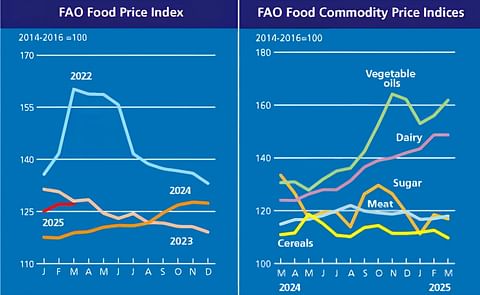Lower Austrian Seed Growers' Cooperative presents two new potato varieties at Potato Europe Nöstling and Meichip

Nöstling (left) and Meichip (right), the two new potato varieties from NÖS.
Together with around 300 active growers, Niederösterreichische Saatbaugenossenschaft, the only potato breeder in Austria, has been breeding high-quality potato varieties for international and domestic cultivation for 95 years now.
At this year's Potato Europe, the company, based in Meires (Windigsteig), will present two new registrations for the chips and table potato sector, reveals Michael Buxbaum, who took over the baton from long-time NÖS boss Manfred Herynek on July 1.
Michael Buxbaum, describing the characteristics of the potato:
This round-oval and light-yellow processing potato also meets the modern grower's specifications thanks to its low susceptibility to disease, Buxbaum emphasizes.
Michael Buxbaum:
The cooperative manages a total of 1,300 hectares of propagation areas in four regions and produces 22,000 tons of seed per year. One-third of this is marketed through Raiffeisen commodities and one-third flows directly via traders, while 20 percent is exported.
At this year's Potato Europe, the company, based in Meires (Windigsteig), will present two new registrations for the chips and table potato sector, reveals Michael Buxbaum, who took over the baton from long-time NÖS boss Manfred Herynek on July 1.
Michael Buxbaum, describing the characteristics of the potato:
"First, we will take the opportunity to introduce our early food variety called Nöstling."The second variety innovation from NÖS is Meichip, a late potato that is primarily suitable for processing purposes, especially for the potato chips industry.
"The yellow-skinned and highly resistant tuber is particularly suitable for use as a predominantly firm cooking potato."
"Furthermore, the variety promises rapid tuber development during cultivation, coupled with an attractive appearance and stable tuber shape."
"Furthermore, the potato has a very high yield potential with uniform grading."
This round-oval and light-yellow processing potato also meets the modern grower's specifications thanks to its low susceptibility to disease, Buxbaum emphasizes.
Michael Buxbaum:
"This potato has also been proven to deliver maximum yields, with the best chip quality."In addition to the two new registrations, the focus is on NÖS's already established variety portfolio, including the two firm-cooking potatoes Valdivia and Graziosa, which were recently awarded the "Golden Erdapfel" (Golden Potato) at the specialist day of the Interessensgemeinschaft Erdäpfelbau.
The cooperative manages a total of 1,300 hectares of propagation areas in four regions and produces 22,000 tons of seed per year. One-third of this is marketed through Raiffeisen commodities and one-third flows directly via traders, while 20 percent is exported.
Like to receive news like this by email? Join and Subscribe!
NEW! Join Our BlueSky Channel for regular updates!
Sponsored Content
Sponsored Content
Sponsored Content
Related Events
Sponsored Content
Sponsored Content








